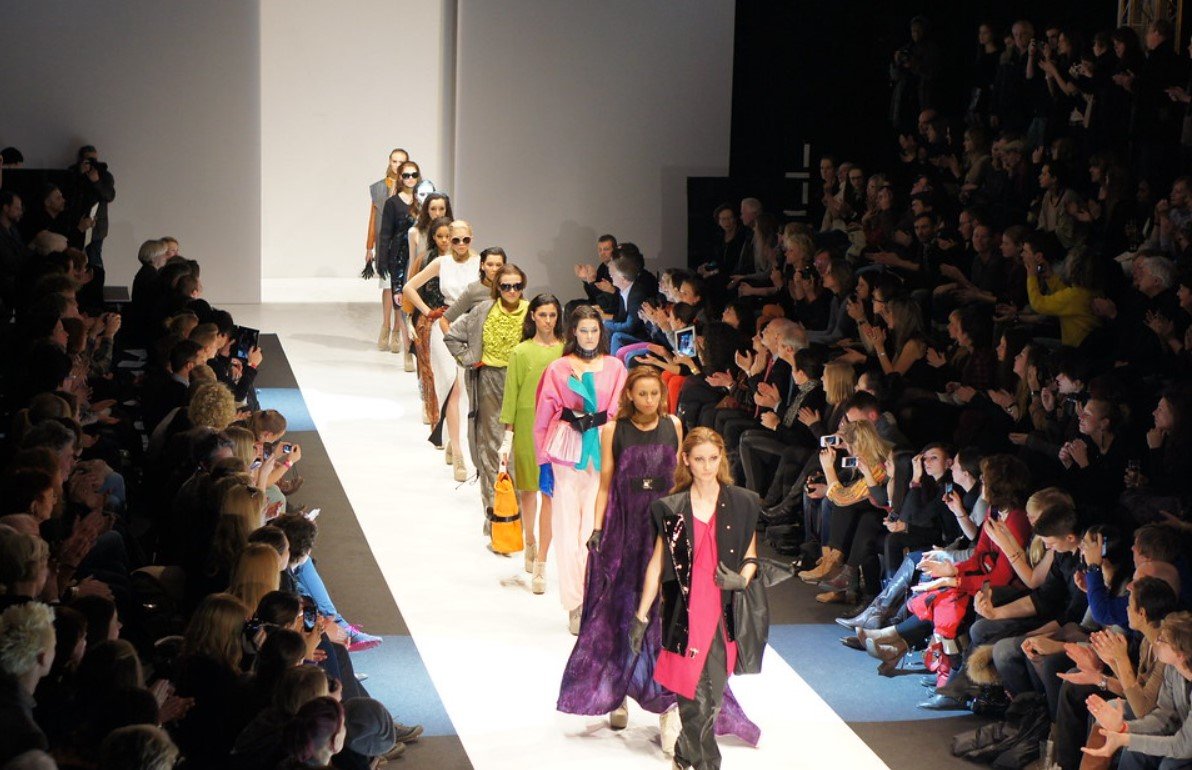Berlin Fashion Week, which took place from February 5 to February 8, 2024, presented a variety of avant-garde and diverse collections for the fall/winter season. The event featured both established and emerging designers, who displayed their creativity and craftsmanship through unconventional designs, materials and concepts. The event also highlighted the themes of sustainability, inclusion and freedom, reflecting the unique character of the German capital.

Berlin Contemporary: A competition for innovative and multifunctional design
One of the highlights of the event was the Berlin Contemporary competition, which selected 18 designers who demonstrated style, craftsmanship and concept, as well as international commercial potential. The winners included 14 German labels and four Ukrainian labels, showing solidarity with the Eastern European country.
The competition showcased a range of avant-garde proposals, such as sweaters made with dog hair by Avenir, modular sneakers with removable fabric covers by Studio Hagel, and extravagant outerwear made with circular textiles by Marke. The competition also featured diverse and inclusive casting, representing the diversity of Berlin as a city.
Ukrainian brands: A mix of tradition and innovation
The Ukrainian brands that participated in the Berlin Contemporary competition also had their own shows, where they presented their collections in more detail. The brands were Bobkova, DZHUS, Glück Clothes and PLNGNS, and they all combined tradition and innovation in their designs.
Bobkova, for example, used natural fabrics and handcrafted techniques to create minimalist and functional garments, inspired by the Ukrainian culture and landscape. DZHUS, on the other hand, used industrial and architectural elements to create geometric and futuristic shapes, reflecting the designer’s personal traumas and experiences. Glück Clothes and PLNGNS also experimented with shapes, materials and concepts, creating original and expressive collections.
French elegance and queer provocation: Two sides of the same coin
Another prominent presence at the Berlin Fashion Week was the French label Impari, which presented its collection ‘La Nuit’ at the iconic Berghain club. The collection was inspired by the nightlife and underground culture of Berlin, as well as the French elegance and sophistication. The collection featured sleek and refined silhouettes, with leather, lace and velvet fabrics, as well as accessories such as gloves, hats and masks.
The collection also had a queer and provocative edge, with gender-fluid and sensual designs, such as corsets, skirts and dresses for men, and suits and trousers for women. The collection aimed to celebrate the freedom, inclusion and creativity of the Berlin scene, as well as to challenge the norms and stereotypes of the fashion industry.
Sustainability and streetwear: A common thread among the Berlin labels
Many of the Berlin-based labels that participated in the Fashion Week also shared a common thread: the combination of sustainability and streetwear. These labels included Haderlump, Lou de Bètoly, Namilia and SF1OG, among others. These labels used upcycled and organic materials, such as deadstock leather, hemp, cotton and cork, to create streetwear-inspired garments, such as hoodies, jackets, pants and sneakers.
These labels also added their own twist to the streetwear aesthetic, with unconventional shapes, colours and details, such as patchwork, embroidery, prints and graphics. These labels also conveyed their own messages and identities, reflecting their influences from subcultures, music, art and politics.








